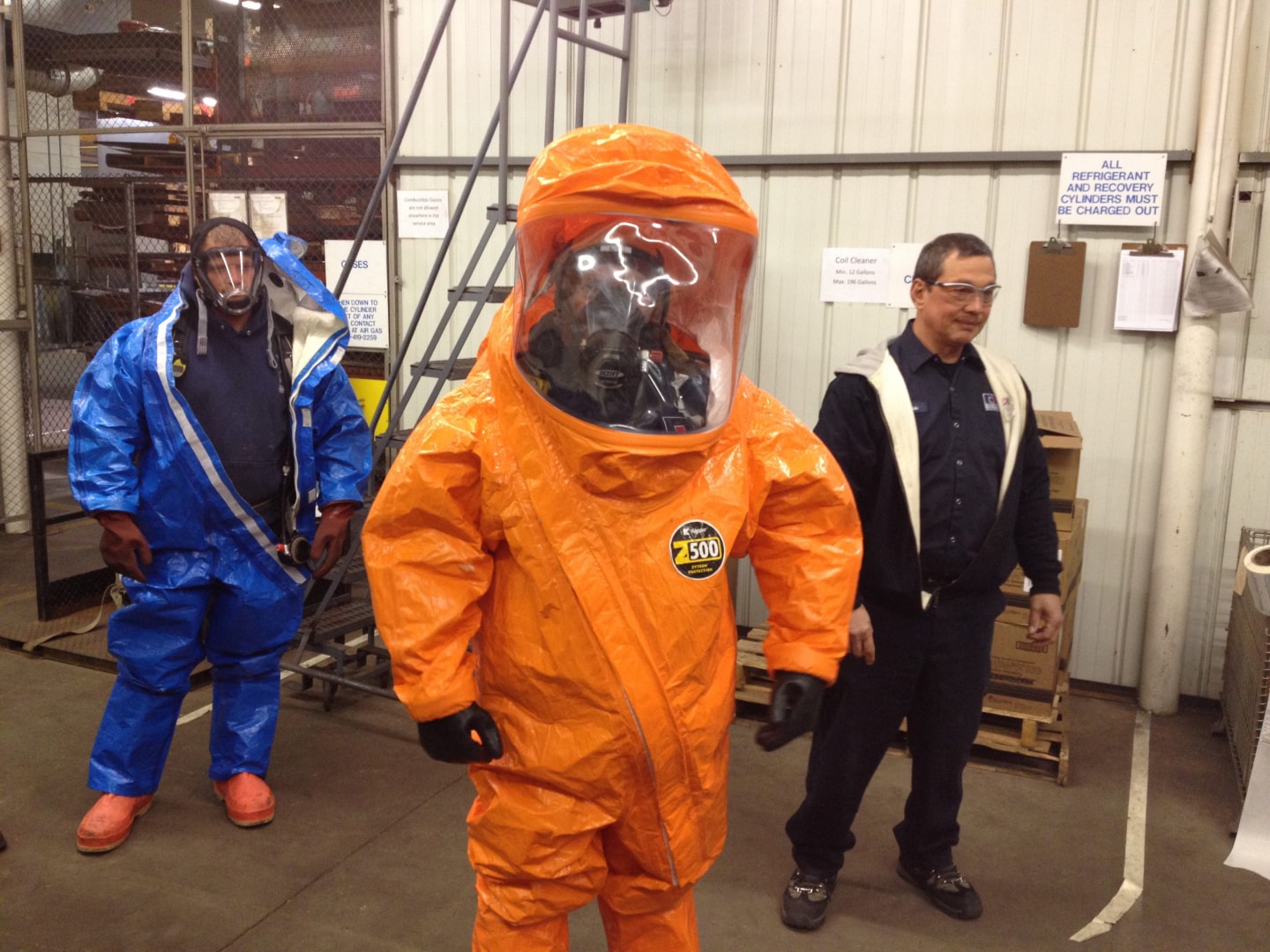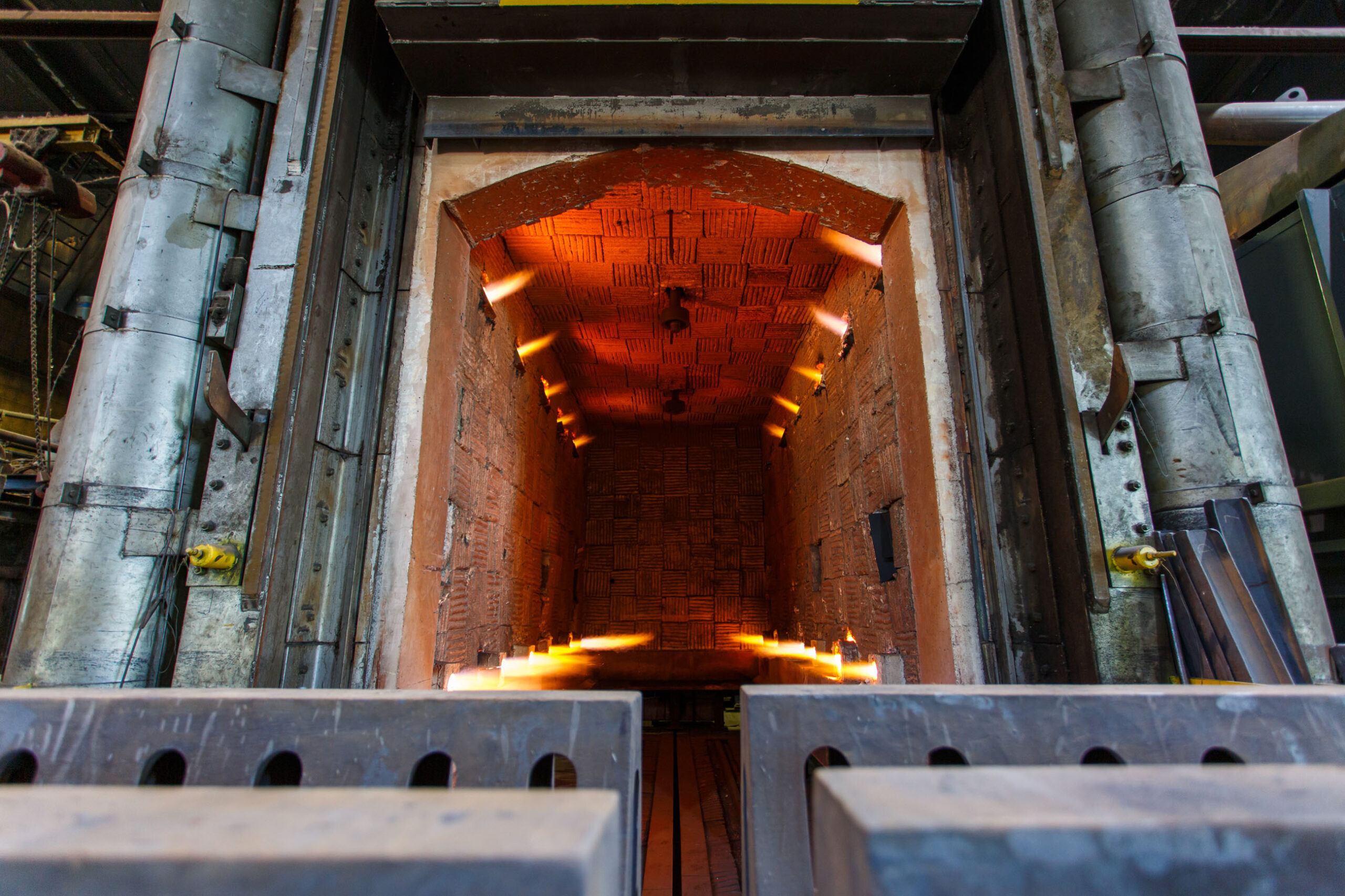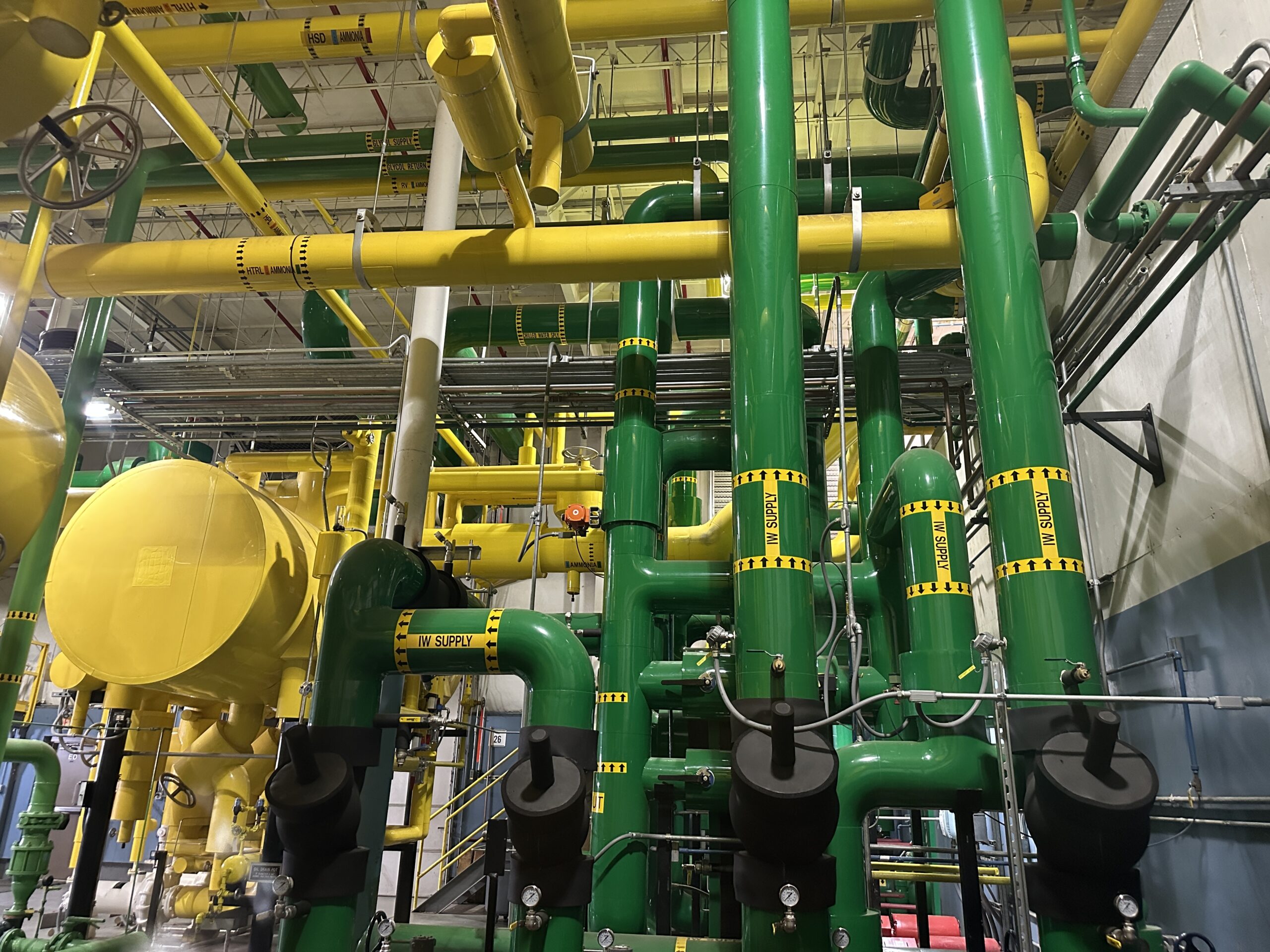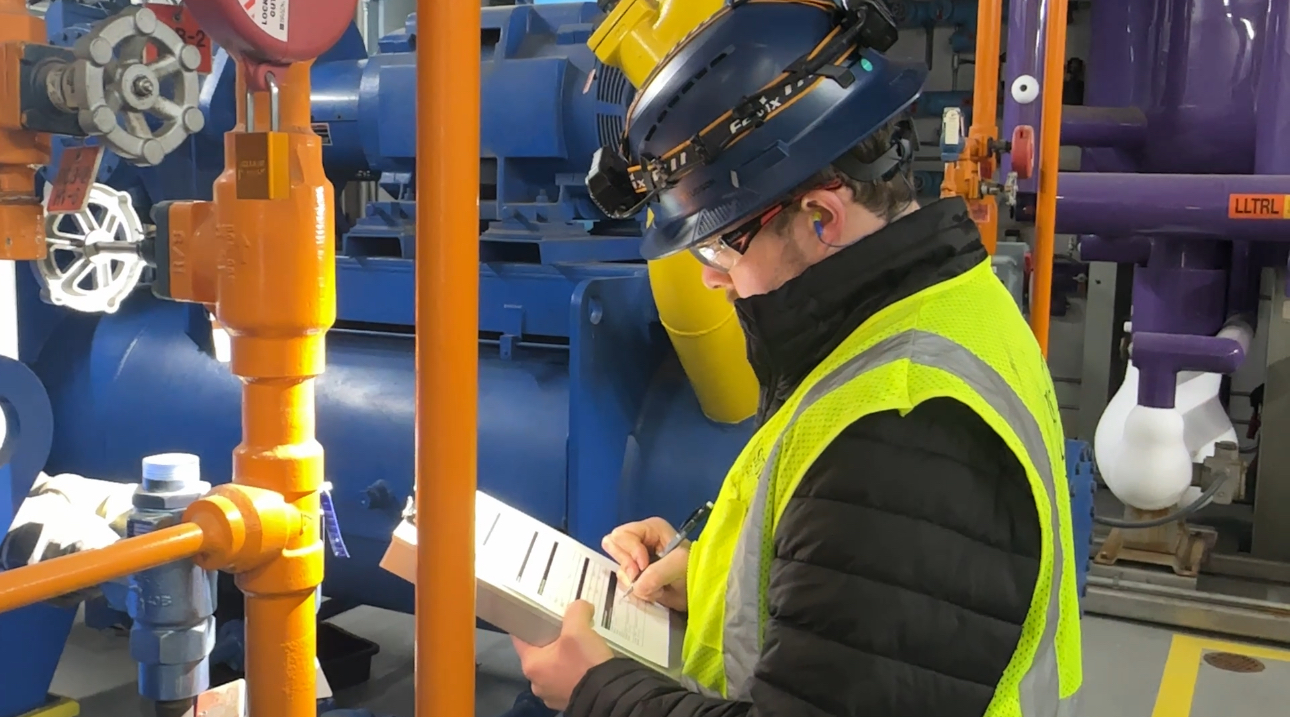Anhydrous Ammonia (particularly in its chemical formula NH3) is a cost effective and environmentally safe refrigerant which is used frequently in commercial cooling/freezing and industrial refrigeration processes. While there are many benefits to using ammonia for industrial refrigeration its use can pose serious risks if leaks or exposures are not handled properly.
Performing preventative maintenance along with implementing a Process Safety Management system and Risk Management Program will help to mitigate hazards for your people, your facility, and your community.
Fortunately, most facilities have not experienced a large-scale emergency ammonia leak. But if an accident did occur, would you know what to do? Having a clearly defined emergency procedure in place would allow you to get control over the leak more quickly, minimizing potential harm to employees, evacuation of neighboring communities, the risk of fines, loss of product, and even downtime.
HAVE YOU CONSIDERED AN ONSITE EMERGENCY RESPONSE TEAM?
Facilities should determine their ability to respond to leaks with staffing and resources available. Having a full response team is critical to providing assurance that you have the capability to respond to and deal with emergencies in an effective manner with specific refrigeration system knowledge. While an ammonia response team will (and should) always work in conjunction with the local fire, EMS, and hazmat services, those services may not have specific training on your specific ammonia systems. An ammonia response team can often mitigate the risks more effectively just because of their familiarity with your systems. Unfortunately, having an in-house response team can be very expensive and may not be possible when an emergency arises. However, having trained personnel qualified to respond to even small leaks less than 300 ppm (parts per million) where only an air-purifying respirator and proper PPE (Personal Protective Equipment) is required may prevent small leaks from becoming an even bigger concern.
WHAT CAN YOU DO TODAY TO MITIGATE YOUR RISK?
- Ensure you are receiving regular and quality preventative maintenance on your refrigeration equipment from an experienced and qualified contractor.
- Review your OSHA PSM (Process Safety Management), EPA RMP (Risk Management Program) or GDC (General Duty Clause) requirements or plan to create them if they are not already in place.
- Seek training for internal personnel to assist in responding to minimal leaks (up to 300 ppm).
- Work in conjunction with your local Hazmat, Fire, EMS, and Police Departments to host a drill or exercise at your facility to ensure you are prepared for a large-scale leak or ammonia emergency.
- Consider the maintenance, service, PSM, and hazmat capabilities of the contractor when selecting a partner on new or repair projects.
THINGS TO CONSIDER WHEN CHOOSING A CONTRACTOR FOR YOUR REFRIGERATION SYSTEM
Whether it is a new or replacement unit, an expansion or an upgrade, at the onset of every project consider safety records and processes, maintenance, service, PSM, and hazmat capabilities as a factor when choosing the best contractor for your job. Not considering the long-term offerings a contractor can provide could be a fatal oversight.
- They built the system so they are familiar with it. When a leak happens they are already acquainted with your equipment even if the room’s conditions do not allow them to see the equipment clearly during an emergency leak.
- They service it, so they know it in and out. When the company who built the equipment also services it, you can rest assured that you have someone who knows the details of your equipment and process, minimizing your potential for leaks or emergencies.
- They provide qualified emergency response. At Bassett Mechanical we provide a 24/7 Ammonia Response Team with tools and equipment for up to a Level A response for our refrigeration customers. We feel this response team is critical to our customers, providing the assurance that we are here to help locate and eliminate the leak and get customers back up and running as quickly as possible.
Ammonia is not something that a facility can afford to mess around with. The consequences of a leak don’t just affect your plant, your people, and your product, but also the community in which we live, work, and raise our children. It’s important to have experts in your corner and processes in place to get an emergency handled as quickly and safely as possible.




